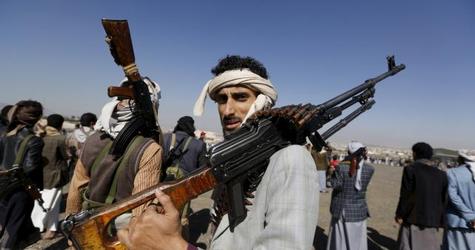-
Tips for becoming a good boxer - November 6, 2020
-
7 expert tips for making your hens night a memorable one - November 6, 2020
-
5 reasons to host your Christmas party on a cruise boat - November 6, 2020
-
What to do when you’re charged with a crime - November 6, 2020
-
Should you get one or multiple dogs? Here’s all you need to know - November 3, 2020
-
A Guide: How to Build Your Very Own Magic Mirror - February 14, 2019
-
Our Top Inspirational Baseball Stars - November 24, 2018
-
Five Tech Tools That Will Help You Turn Your Blog into a Business - November 24, 2018
-
How to Indulge on Vacation without Expanding Your Waist - November 9, 2018
-
5 Strategies for Businesses to Appeal to Today’s Increasingly Mobile-Crazed Customers - November 9, 2018
7-day ceasefire to begin in Yemen on Monday
In this photo provided by the Yemeni Presidency, Yemeni President Abed Rabbo Mansour Hadi, center, meets with officials and local leaders in the southern port city of Aden, Yemen, Sunday, Dec. 13, 2015.
Advertisement
The spokesman of the Shiite rebels known as Houthis, Mohammed Abdel Salam, said, “We have agreed to the ceasefire to lift the suffering of our people and to deliver humanitarian assistance to them”.
The U.N. special envoy to Yemen, Ismail Ould Cheikh Ahmed, said last week that delegates from the Hadi-led Yemeni government, Sanaa-based Houthi rebels and the General People’s Congress (GPC) party of former President Ali Abdullah Saleh would take part in the talks. “In recent weeks, Washington and London have exerted intense pressure on President Hadi and the government side to make concessions and not to be extreme in terms of executing the Security Council Resolution”, one senior Yemeni government official told Reuters.
“We are going to the talks with serious intentions and we hope that the other side abides by that”, he added.
In what appears to be the single deadliest strike of the nine-month Saudi war in Yemen, forces loyal to the Shi’ite Houthis fired an OTR-21 Tochka tactical ballistic missile at a pro-Saudi coalition base near Taiz, with early reports putting the death toll around 152 troops.
Beyond the main theater of conflict, al Qaeda in the Arabian Peninsula has seized control of much of the province of Hadramawt and Gulf-backed forces have failed to prevent attacks in areas they control by Yemen’s wing of Islamic State.
The Saudi government responded with coalition airstrikes that have since pushed rebels out of Aden and allowed Hadi to return to that city.
The Iran-allied Houthis describe military operations in Yemen by a Saudi-led Arab alliance as an aggression. Hence, some regional experts fear these talks could end in a stalemate, which has been the case for the past few years. The change in plans, reportedly requested by Hadi himself, now coincides with the start of UN-brokered peace talks in Geneva.
July 17: Yemen’s exiled Prime Minister Khaled Bahah announces the liberation of Aden province after more than four months of fighting.
But with Yemen so divided and its political classes polarised, few in the country expect the Geneva talks to hammer out a political transition and even pausing the daily killings would be considered a major accomplishment.
Advertisement
But both sides say they’re made a decision to finish the disaster that displaced thousands and a huge number of individuals and had devastated the nation.





























